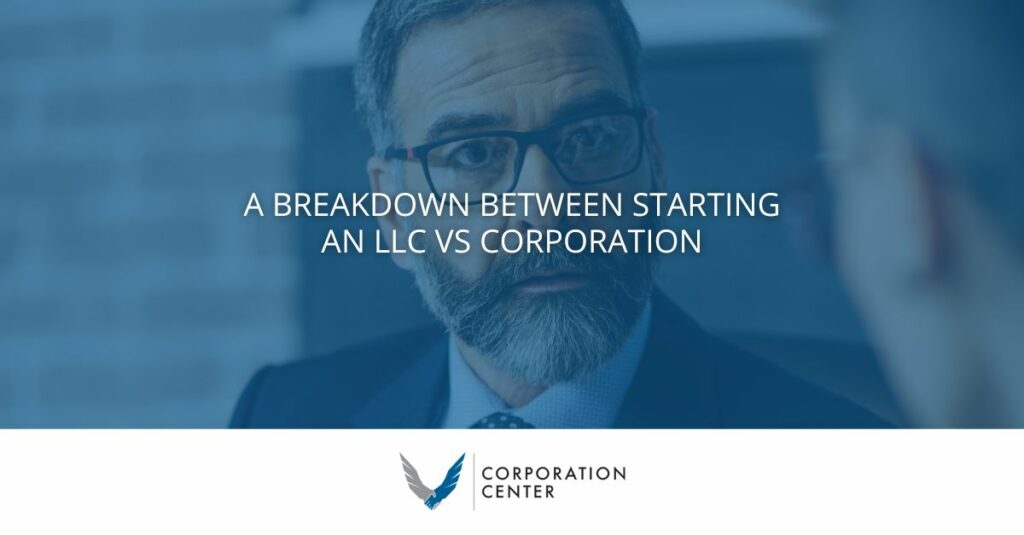Are you mulling over the idea of launching a new company but can’t decide which legal structure best suits your needs? This article will discuss the primary distinctions between Starting an LLC and a corporation. You will be able to choose the most suitable organizational framework for your company if you are aware of the benefits and drawbacks associated with each possibility. When comparing creating a corporation to starting a limited liability company (LLC), a few important variables might affect your business selections. Consider the following examples of some of the more significant ones:
Limited Liability
In contrast to an LLC, a company has a distinct legal identity from its owners. While both are regarded as commercial entities and provide their owners with certain legal protections, such as limited liability, this has a distinct meaning for each of the two. The phrase “limited liability” does not apply to corporations as it applies to limited liability companies. According to score.org, the owners of an LLC have a restricted amount of personal responsibility for the debts and liabilities of the company, thus the term “limited liability.” Creditors will be able to seize your personal property (such as your computer, vehicle, or house), but they will not be able to take all that you possess. When a corporation is involved, however, owners are often held personally liable for all of the company’s debts and commitments, meaning you might lose everything you own in addition to your company’s assets.
Taxation On Starting an LLC VS Corporation
What method of tax reporting will you use? Taxing your company revenue as personal income is not an issue when you have a corporation. Because corporations are distinct from their owners regarding their legal position, they must have their tax identification number (EIN). As opposed to corporations, LLCs are taxed as a “pass-through” entity. As a result, the LLC’s revenue is taxed at the owner’s tax rate rather than being taxed as a separate entity. This might be a problem if you wish to deduct personal and business costs from your company revenue. Keeping track of them is a distinct task from keeping track of other personal costs. When it comes to tax deductions, some individuals find it convenient to be able to write off all of their company costs against whatever other income they may have for the year; for others, it is a deal breaker.’
Record Keeping and Corporate Compliance
Incorporation is often done for three reasons: to insulate the owners from personal responsibility for the business’s debts, to give liability protection for both the owners and other parties, and to consider tax implications. Companies must comply with corporate formalities to shield their owners from personal liability. These formalities include holding meetings, keeping minutes, electing officers, issuing stock certificates, keeping corporate records, and forming a board of directors.
Other formalities include keeping corporate records. This is one of the primary reasons many individuals prefer establishing corporations: they want to keep the tax advantages and minimal overhead costs associated with operating as a sole proprietorship while still enjoying the full range of legal protections available via incorporation. Setting up an S-Corporation is one way to achieve this goal. This kind of corporation requires very little official documentation, making it more efficient and shielding its owners from personal responsibility.

Ownership And Management
With an LLC, the firm members retain ownership of the business. Individual shareholders may determine for themselves how the firm will be operated and what choices each one should have a vote in. Possessing a portion of a company in the form of stock is possible. Proportional voting rights are granted to shareholders based on the number of shares they possess. There is a risk that one side may not get their way because he does not possess a sufficient number of shares in the firm. It also implies that if you intend on selling your firm in the future, you will most likely have to sell it as a whole and will not be allowed to split the ownership among other persons. If you decide to sell your stock at some time, an intermediary (like a bank or broker) will most likely take a cut of the selling price before you get your money.
In the early stages of your company’s existence, you may be seeking the easiest and most cost-effective approach to get things going. When deciding whether or not you should consider Starting an LLC versus VS corporation, it’s normal to be unsure about which structure is best for your business. Call the Corporation Center at (800) 580-4870 to learn more about the similarities and differences between these business organizations. We’ll be able to assist you in determining which choice is best for you and your organization once we know your objectives as a business owner.





